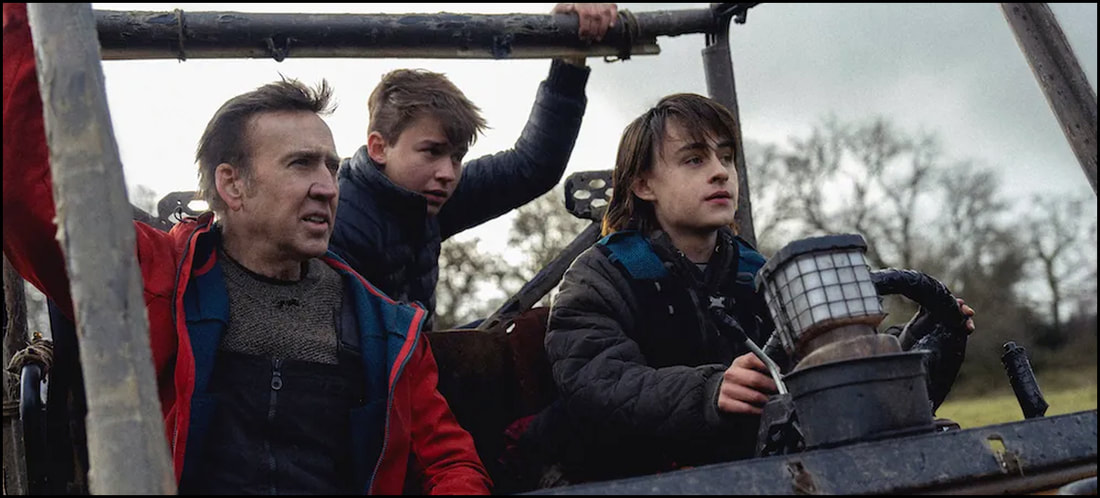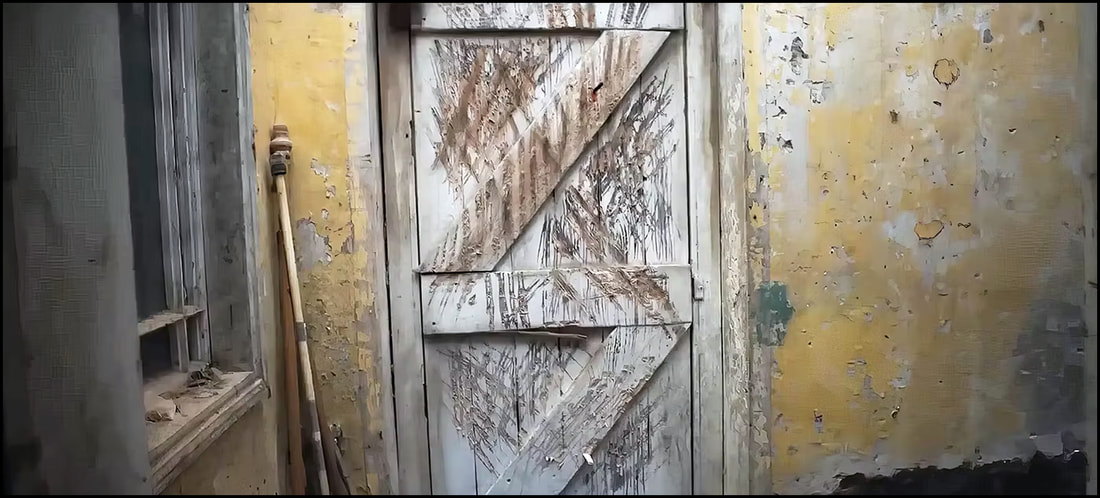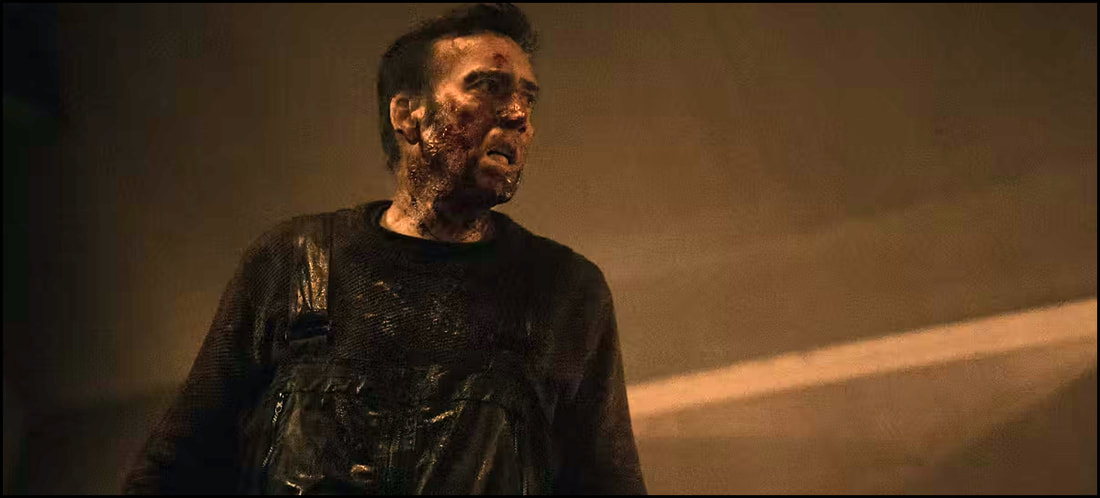As an example, audiences have been treated to any number of ways in which our planet – with or without mankind’s existence – has turned a bitter corner and sped down the path toward a ghastly end. We’ve been shown the dangers of nuclear annihilation. We’ve been castrated by hundreds upon hundreds of alien invasions. Christ has returned – or a suitable Devilish facsimile – and civilization itself has been thrown into chaos. There’s also been plagues, celestial collisions, viral contagions, zombie uprisings, environmental catastrophes, global warming, robot revolutions, rips in the space/time continuum, monsters unleashed, and just about any other variation on a theme that can be imagined, spun up, and presented as cautionary tales to the masses-at-large.
Yes, I think it’s safe to suggest that mankind – or, at least, those of us who partake in entertainment – has a collective fascination with our impending doom.
In fact, End Times’ scenarios have become so commonplace in fiction – both in literature and screens big and small – that storytellers have been able to access a kind of narrative shorthand: consumers don’t require as much set-up as perhaps they have in the past, and they’re both equipped and willing to step into these various upheavals with even a bare bones structure. Twenty or thirty years ago, a little something-something like Arcadian (2024) might’ve been shrugged off by viewers as they abandoned it for vehicles with greater specificity. This isn’t to say that the picture as directed by Benjamin Brewer and starring Hollywood heavyweight Nicolas Cage is perfect because that’s pretty far from the truth; still, the tale moves effectively on its own economy, never sacrificing its rural setting in favor of the glitz, décor, and spectacle one used to require of mankind’s downfall.
As Apocalypses go, this one is downright picturesque … albeit in a dreary sort of way.
(NOTE: The following review will contain minor spoilers necessary solely for the discussion of plot and/or characters. If you’re the type of reader who prefers a review entirely spoiler-free, then I’d encourage you to skip down to the last few paragraphs for the final assessment. If, however, you’re accepting of a few modest hints at ‘things to come,’ then read on …)
From the film’s IMDB.com page citation:
“A father and his twin teenage sons fight to survive in a remote farmhouse at the end of the end of the world.”
When it comes to creature features, I’ll admit that I’m a huge, huge, huge fan.
Where I struggle with them – especially ones made in the modern era, let’s say about anything post-2000 – is that the scripts tend to lack a good deal of specificity.
Feeling somewhat similar to A Quiet Place (2018) and even a bit like A Quiet Place: Part 2 (2020), Arcadian completely ignores the bright lights and the big cities of our world in favor of a remote farm somewhere I believe in the Irish or English countryside. (Again, I’m not entirely certain it was spelled out, so I’m going with what little info Mike Nilon’s script saw fit to put onscreen.) Suffice it to say, there’s not a lot to look at except for Paul (played by Nicolas Cage) and his two sons, Thomas (Maxwell Jenkins) and Joseph (Jaeden Martell), but the story somehow manages to soldier on quite nicely without a cast of thousands. Perhaps Hillary Clinton had it wrong, and a village is not nearly as necessary as Liberals insist!
After a flashback-style set-up that shows the young father escaping a growing urban Hellscape punctuated by chaos and destruction, the film jumps fifteen years later. The former infants are grown into teenagers, and they’re behaving much the way boys do, fueled by hormones, hissy fits, and hobbies. While Thomas has become somewhat enamored with Charlotte (Sadie Soverall) – the daughter of a neighboring farming community that has also survived against the odds – Joseph whiles away his spare time fascinated with science and strategy. Under Paul’s watchful eyes, the two have grown into two bickering teenage archetypes (the ‘brainy’ one versus the ‘brawny’ one); and it’s pretty clear that a little bit of both will be needed collaboratively before this tale is done and finished.
What distinguishes Arcadian from like-minded pictures is the fact that it really does spend more time in the domesticity of surviving in the age of collapse. Time is spent on some of the more mundane tasks required to make life possible – maintaining the house and its defenses, scavenging for supplies, etc. – so it isn’t until the second half when a few bad choices cause a somewhat stable existence to go awry. While our species is kinda/sorta depicted as being ‘stuck in our ways,’ our theatrical adversary here has been gifted with a hive mind that apparently evolves; otherwise, I’m left wondering why it’s taken these monsters so long (fifteen years) to figure out a way around something as simple as a lock and a door.
This shorthand does make Arcadian an occasionally difficult story to follow. Neither director Brewer nor screenwriter Nolin felt it was necessary to tell us exactly how and why civilization fell nor what role specifically these rather gruesome critters may’ve played in it. Yes, there are hints and suggestions dropped here and there; but when and if those tasked with filling in all of the blanks necessary for this to make perfect sense opt not to, then some in the audience (myself included) can be easily distracted with trying to come up with answers all of our own. Thankfully, they instead focus in on distracting us with action instead of thought; and – on that level alone – the film makes for a better-than-average thrill ride.
However, said shorthand also extended to the project’s visual styling, and I’m just not a fan of cinematography so dark and underlit. Call me a stickler if you will, but I like to see clearly what’s going on – especially if I’m being expected to suspend my disbelief so prevalently – and a great deal of these night-time series are hard to discern. While I can understand any filmmaker’s desire to not overexpose the seminal creature – thus preserving its mystery – I don’t think viewers are properly served if darkness and shadows become the norm. Sadly, there’s a bit too much of that in here for my tastes.
Arcadian has a great long sequence wherein young Joseph is acting on his desire to capture one of them so that he can study it, to understand it, to identify what it is and just how it ticks. (Again, that’s how audiences are wired, so why shouldn’t someone fulfill that task?) While the scene works rather effectively despite some curious computer-generated imagery, it also presents a critter with some curious skills and attributes that we’ve yet to see before (in this story) and, sadly, never come up again in its 90-minutes. Well … why? And why not? If you’re going to give a monster the ability to kinda/sorta elongate itself into such a shape, then why do you ignore the same capacity on multiple occasions wherein it obviously could’ve been put to even better use?
The answer is likely because it would’ve thrown a monkey wrench into the scene as written, and that’s a shame … because I – and monsters – expect and deserve better.
Arcadian (2024) was produced by Aperture Media Partners, Highland Film Group, Redline Entertainment, and Saturn Films. According to IMDB.com, the film is presently screening theatrically in such places as Canada, Ecuador, the United Kingdom, and the United States. As for the technical specifications? While I’m no trained video expert, I’ll admit to not being entirely thrilled with all of the picture’s cinematography: there’s a great deal of this photographed in little-to-no-light (a significant portion of the events occur overnight), and several sequences are very difficult to discern (likely by design). Still, it works more often than it fails. Lastly, as I’m viewing this one during its present theatrical run, there were no special features under consideration.
Recommended.
Because I’m a fan of monster movies, I was able to forgive some of the faults here and there within Arcadian (2024) in appreciation of being entertained. Despite some weaknesses here and there, the project remains a reasonably efficient thriller set well after civilization’s ruin with no return-to-prominence anywhere in sight. Who knew raising a family during the Apocalypse could be as grim as it is gratifying, and thank goodness that Nicolas Cage was there to give the whole shebang the gravitas it, ultimately, needed.
In the interests of fairness, I’m pleased to disclose that the fine folks at IFC Films provided me with complimentary streaming access to Arcadian (2024) by request for the expressed purpose of completing this review. Their contribution to me in no way, shape, or form influenced my opinion of it.
-- EZ




 RSS Feed
RSS Feed